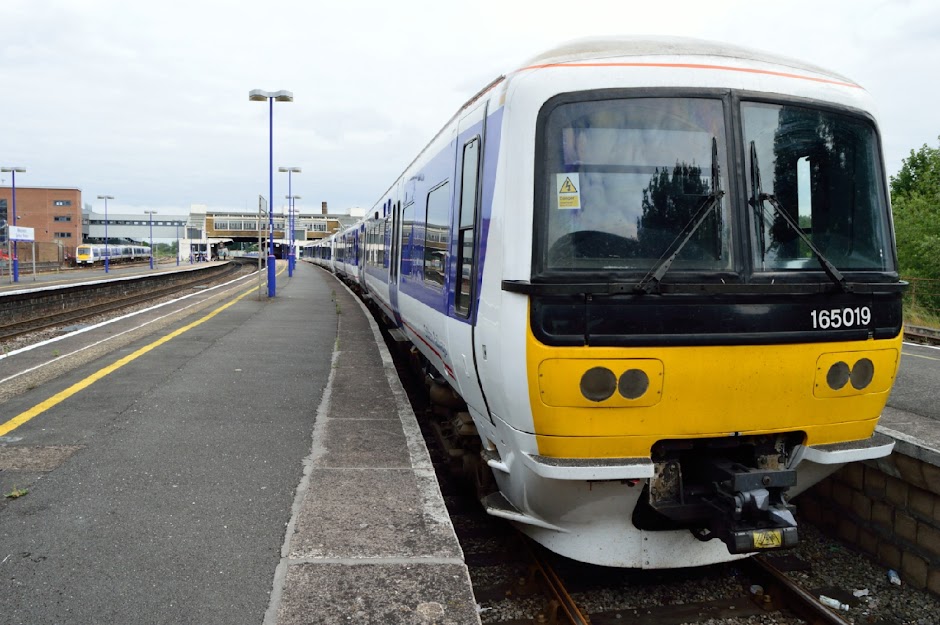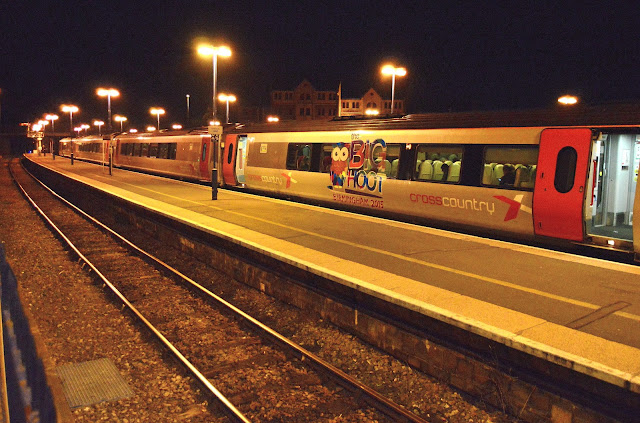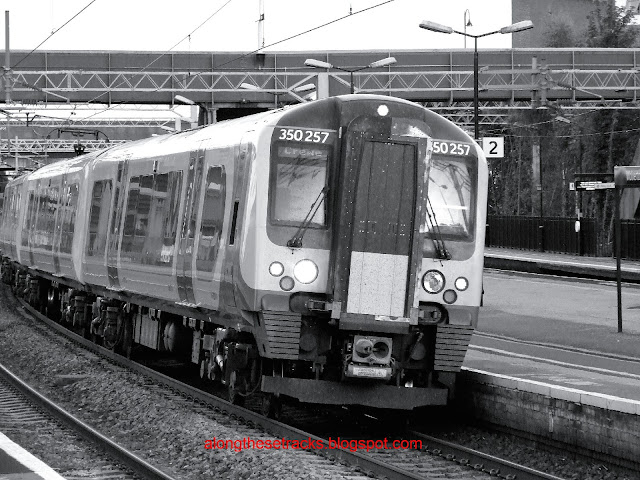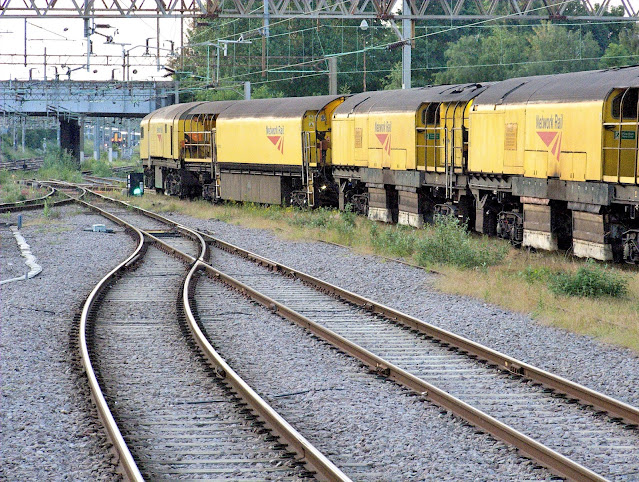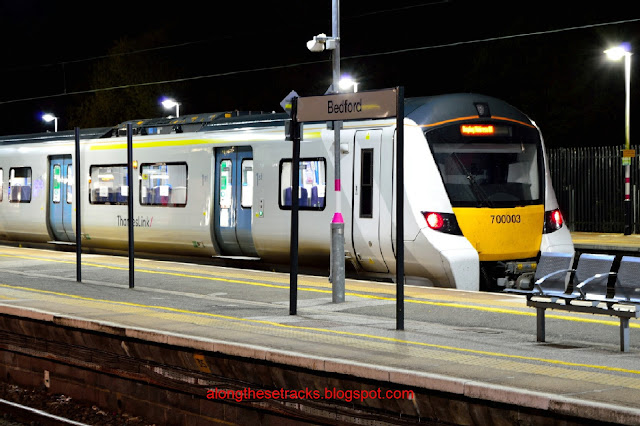 |
| Class 47100 'Merlin' loco at Eastleigh Photo: Charles Moorhen |
|
|
Photographed in May 1989, on 35mm colour film, diesel locomotive Class 47100 in BR blue livery, stands in Eastleigh station, Hampshire.
Class 47100 - original number D1687 - was built at the Brush Falcon Works in Loughborough and entered service on 16th November 1963.
On the 20th September 1989 the loco was given the short-lived unofficial name, 'Merlin', before being unnamed two years later on the 17th July 1991.
After 28 years service on the UK railway network, it was withdrawn in 1991. January 1994 saw it cut-up at CF Booths scrapyard in Rotherham, Yorkshire.
This should have been the end of the story of diesel locomotive Class 47100, but a strange thing happened. Although the engine and bodywork was scrapped, by some twist of fate the cab survived.
It was purchased by a Mr. Thorley who was a collector of locomotive cabs which he stored in his garden. At a later date the Merlin's loco cab was acquired by Mr. Richard Benyon of the South Wales Loco Cab Preservation Group.
In 2009 the cab of Class 47100 was on the move once again, this time by low-loader to its final destination - the 'Ribble Steam Railway' in Preston.
Stored in the Railway's workshop the cab is now undergoing renovation with the intention of creating an interactive display for visitors.
 |
Photo: Martin Brown
|
 |
Photo: R. MacVeigh (flickr)
|
512 Class 47s were built, of which 30 have passed into preservation and can be found (at time of blog-page publication) at the following locations, though this may be subject to change for various reasons.D1524 47004 - Embsay & Bolton Abbey Railway.
D1693 47105 - Gloucestershire Warwickshire Railway.
D1705 47117 'Sparrowhawk' - Great Central Railway.
D1842 47192 - Crewe Heritage Centre.
D1855 47205/47395 - Northampton & Lamport Railway.
D1994 47292 - Great Central Railway Nottingham.
D1787 47306 'The Sapper' - Bodmin & Wenford Railway.
D1886 47367 - Mid Norfolk Railway.
D1895 47376 'Freightliner 1995' - Gloucestershire Warwickshire Railway.
D1500 47401 'North Eastern' - Midland Railway Butterley.
D1501 47402 - East Lancashire Railway.
D1516 47417 - Midland Railway Butterley.
D1566 47449 - Llangollen Railway.
D1662 47484 'Isambard Kingdom Brunel' - (Private Location).
D1107 47524 - Dean Forest Railway.
D1778 47183/47579/47793 'James Nightall G.C. - Mid Hants Railway.
D1762 47167/47580/47732 'County of Essex - Carnforth.
D1933 47233/47596 'Aldeburgh Festival' - Mid Norfolk Railway.
D1606 47029/47635 'Jimmy Milne' - Epping Ongar Railway.
D1970 47269/47643 - Bo'ness & Kinneil Railway.
D1948 47505/47712 'Lady Diana Spencer' - Crewe Heritage Centre.
D1619 47038/47564/47761 - Midland Railway Butterley.
D1643 47765/47059/47631 - East Lancashire Railway.
D1946 47503/47771 - Eastleigh Works.
D1755 47541/47773 - (Location Not Known).
D1909 47232/47785/47820 - Wensleydale Railway.
D1656 47072/47609/47834/47798 'Prince William' - York Railway Museum.
D1654 47070/47620/47799/47835 'Prince Henry' - Eden Valley Railway.
D1966 47266/47629/47828 - Carnforth.
D1661 47077/47613/47840 'North Star' - West Somerset Railway.
More Class 47 and 57 images on 'Along These Tracks'.



